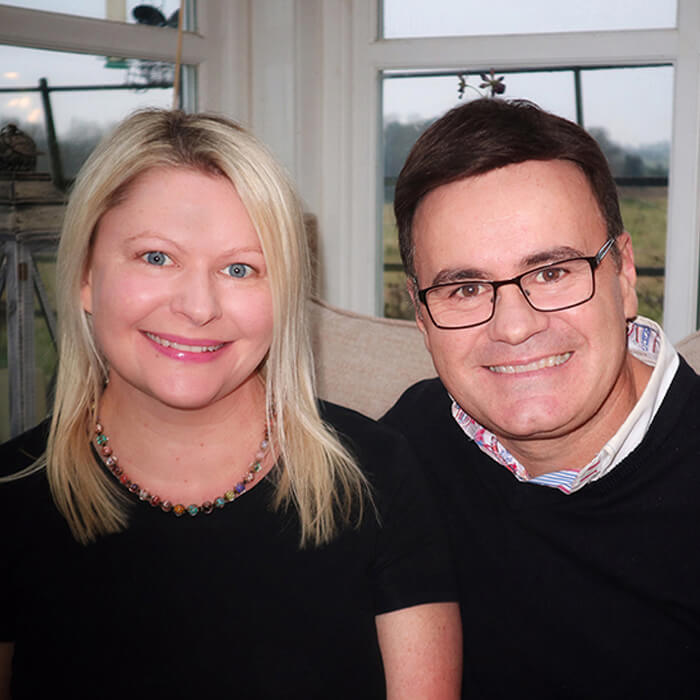
by Sarah Blinco | Aug 21, 2017 | Being a digital nomad and working abroad, Creative travel experiences, Europe, Travel blogger destinations
Often I just want to run away from a computer, overwhelmed by eight hours or more in front of one for work (perpetually in need of a Malta vacation, it seems).
Other times, when without apparatus to scribble down my thoughts, I long for anything that will enable me to record ideas.
Malta vacation – an exercise in mindfulness
Writing is an outlet and my love, and I never feel more inspired than when I’m travelling. If I’m constantly thinking and on sensory alert, am I being mindful on the road?
Despite the media craziness and the threats that would have us believe we are barely safe to leave our or homes, I am at peace when I’m exploring somewhere new.

It might sound odd that I suggest travel is the best opportunity to actually practice mindfulness – on the road we’re always looking around, getting involved with the senses and quite possibly on a device like a laptop or phone. The mind can be busy.
However, I think we can experience mindfulness in an almost pure form while travelling and feeling new things; experiences, sights, sounds, smells and tastes.
I feel blessed to be able to see the beauty in things too, without judgement. Difference is interesting, often charming.
I suppose awareness is the trick. And then, life is definitely beautiful.
I’m currently on a crowded bus in Malta that’s ferrying customers of all ages along the Sliema strip towards the capital Valletta, and then out towards where we are based in il Żurrieq.
I struggle to maintain balance, holding on for dear life up the front of the bus and scrambling to tap my thoughts down into my iPhone’s Notes app. It’s around 7pm and this particular August day’s sunset has begun it’s decent across the harbour. All I can think is:
How enchanting, I wish I could share this with my loved ones [who I wish could be here as I know they’d appreciate it].
It’s at this point it occurred to me – after Cooper and I spent hours today creating travel content (videos and photography) we are proud of – that while the likes of us are sometimes frowned upon for the time we spend staring at a screen, we might be the mindful ones.

Other digital nomads understand where we’re coming from, and if you don’t, consider for a moment that we are not just playing around on our phones and being entirely anti-social; we are consciously paying attention for the beautiful moments.
We are capturing them in the best way we know how: those landscapes, experiences, history, stories, that we can share to be inspiring, helpful, entertaining or informative (perhaps all of the above).
That’s what most travel bloggers intend.
We are consciously seeking the photo, video, words that might inform and educate your next decision or judgement on any given destination.
In this way, those of us being conscious about creating and capturing are being mindful.
And trust me, we are grateful for these moments because we are aware of just how precious they are.

We are also mindful to put the devices down and enjoy too.
There’s nothing that irritates me more than people wandering mindlessly about, noses in phones, not realising they are holding up a huge crowd behind them or missing out on something their friend is saying to them.
But, sometimes when inspiration strikes, you need to take advantage of a 40 minute bus ride and get those words onto paper (or into a phone, whatever is handy).
Next time you find yourself confused or irritated at someone with a camera who looks like they’re trying to capture ‘just another shot for Instagram’, have a little faith that maybe they are not just another selfie-obsessed tourist; maybe, just maybe, they’re on a mission to inspire, educate and inform, like we are.
Or perhaps they’re chasing a dog, as we do too. But that story for another time.
If you’re heading to Malta, discover our best places in Malta to visit here in a beautiful photo story
What do you think about this and how do you practice mindfulness on the road? Would love to know, drop me a line in the comments.
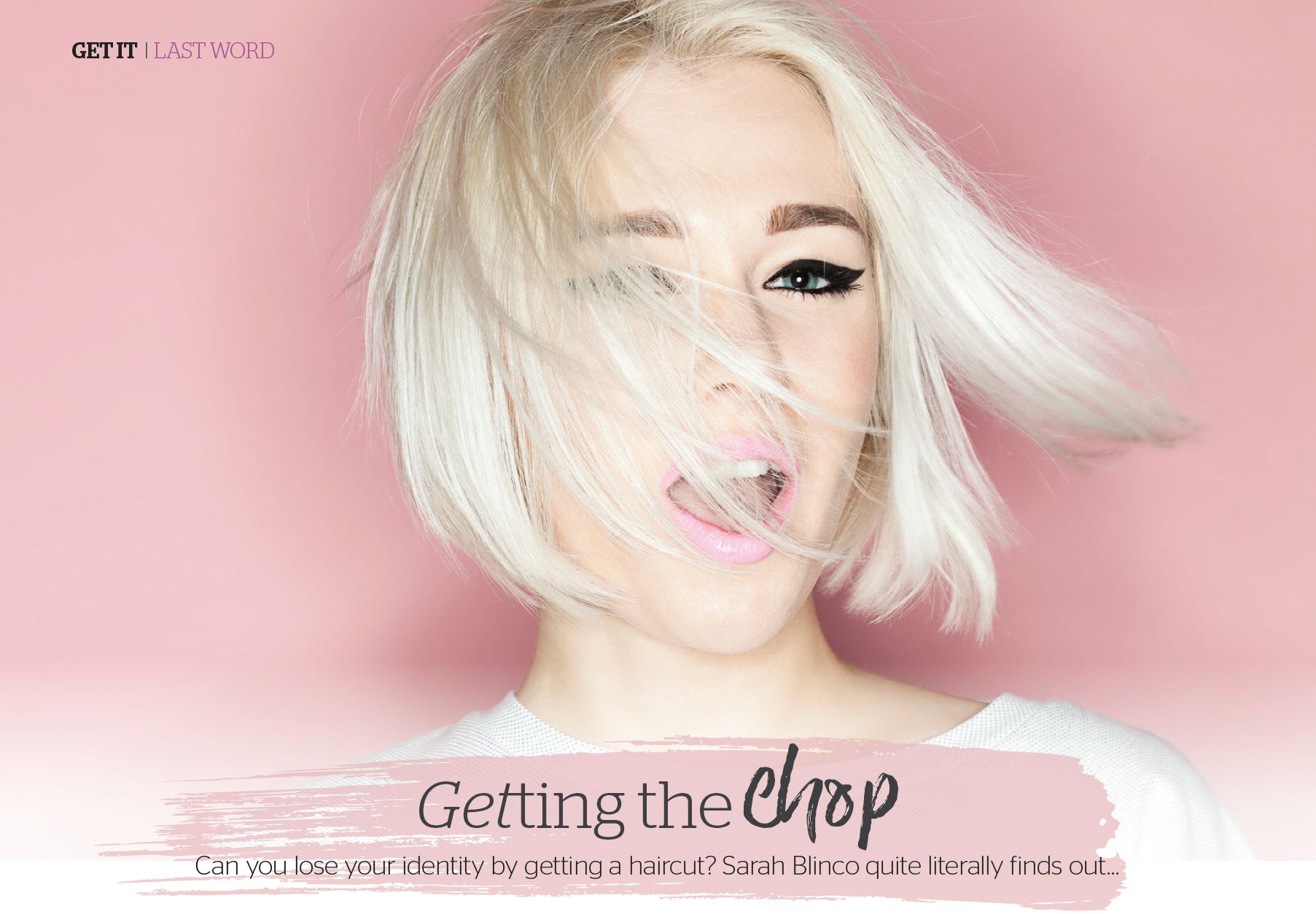
by Sarah Blinco | Aug 15, 2017 | Lifestyle, Travel blogger destinations, Travel Live Learn in the media
Can changing your hair change your identity?
Happy to be back and having a say – the Last Word to be precise – in Get it Magazine. This month, wisdom in a haircut. How? Read on to find out, and click the cover photo to read the digital edition of this lovely mag. –Sarah

Every few years as the seasons change I find myself casually eyeing photos of short hairstyles – cute bobs, messy beach crops and sexy layers. Infrequent browsing becomes more determined, and the excitement of a new do dawns.
I inevitably commit. Let’s cut this long boring hair. Yes!
I browsed, bookmarked, and was even clickbaited by InStyle UK when the magazine declared the look of the year is a “hot platinum blonde buzz cut”, as showcased at Paris’ Haute Couture Fashion Week in July by Katy Perry, Cara Delevingne and Karlie Kloss.
Those ladies are never wrong. We should all do this, right? There’s nothing like a rebellious visit to the salon where you announce to your gleeful stylist, ‘Let’s do this – I’m ready for a change and to let the world know I’m not afraid – you have my blessing to CUT!’
I showed up on time, gave the salon dog, Dolly, a hug, and then produced my efficient Pinterest board full of inspiration and examples. My stylist smiled and nodded. I felt confident.
Other blondies will understand the process – colour first, then toner, wash, condition; all the while gossiping, flicking through magazines and scrolling Instagram (trying not to pick out too many more photos that demonstrate how we might like to look at the end of this big event).
The scissors appeared and the chirpy apprentice primed her phone in order to Instagram my transformation. The examples I shared showed a choppy blonde look that fell a little above the shoulders. My hairdresser went to start at that length, but during a moment of miscommunication when I wasn’t entirely paying attention (I was actually filming Dolly for Facebook because I am a [crazy] dog-lover), a lot more hair came off than I expected.
The bob was chic and shapely. But oh, it was short.
Some of you reading this know me and you’ve likely heard me preach about how change is great – go for it, put yourself out there, quit the job you hate, fall in love, move overseas, go travelling, adopt a rescue dog, cut your hair off… all excellent ideas.
The crisis of identity that followed was kept secret, except from Cooper my long-suffering better half. He offered support. ‘You look ten years younger,’ he said. Bless him. ‘Yes’, I thought, because I haven’t had this cut since I was 15!
At this point all I could see was long hair – film, television, magazines, my own selfies. Long hair, everywhere.
This all happened right before we went on a holiday and in hindsight part of the problem for me was trying to style a brand new cut while using harsh hotel hair products. My hair wasn’t moving. I defiantly refused to be in photos. I didn’t look like me. I consider myself to be quite ‘low maintenance’, and was surprised by my reaction. I took to Google to try and make sense of it all. Psychology Today explained: “Because it is so visible, hair becomes a part of a person’s identity. It helps define the persona you aim to create… Hair can also influence the way you define yourself to yourself, as an extension of your identity”.
By the time I returned to my day job, I had started to master the look. I was even warming to the new me. My manager tentatively complimented the change, and followed with a story about how he’d once thought he was doing the right thing by acknowledging a colleague’s cut only to have her promptly burst into tears. #firstworldgirlproblems
Now I’m back though. The ‘brave’ one with the cute crop (and hair trend of 2017?); the blondie who does things most others won’t [are not crazy enough to] do. People seem to like it. I do now too. Did I lose my identity? Yes, for a bit. Was it worth venturing outside of my comfort zone? As I always say, definitely.
Read the August issue of Get it Magazine online
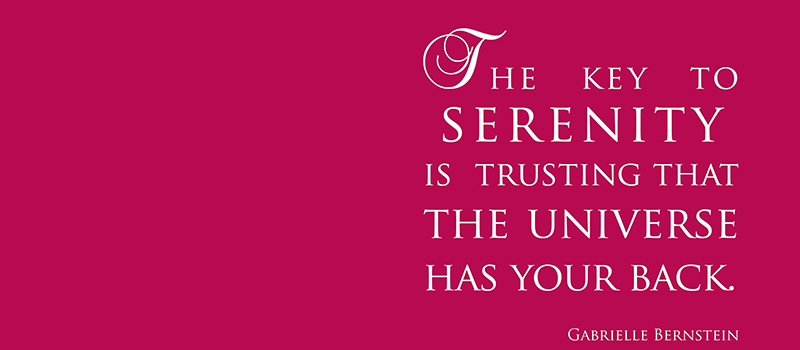
by Sarah Blinco | Nov 19, 2016 | Creative travel experiences, Lifestyle
I now have loads of law of attraction success stories, which I feel fortunate about. But there was a time when this was all new. Recently, I experienced a really really terrible week. That was followed by several weeks prior that weren’t much better.
Appreciating the journey: my law of attraction success stories
I’d been faced with countless deadlines and challenging situations in all of life’s fundamental areas. Top it off with a seriously ill loved-one and me feeling generally unsupported. I hit one of those awful places in time where I was finding it difficult to get up in the morning. Inevitably something had to give, and it’s where one of my big law of attraction success stories begins.
I was stuck on where to start and how to ask for help to see things differently.
My mood matched that of the now-wintry grey English skies.
As one to usually be able to drag myself out of feeling miserable, I found myself in a place where I didn’t know what to do next. I was depressed, teary and withdrawn.
I waited for the clock to tick down at work each day. I felt utterly awful, and even more down because usually I’m happy there. I enjoy my days and make a point of trying to make someone else’s day a bit brighter too.
Ironically, someone I turn to for genuine and useful advice was also having a terrible week. While I appreciated the odd bit of sympathy gained here and there, I basically felt really alone.

Getting out of a hard place
Seems to be the way when down times hit. I’m sure you know the feeling well – we’ve all been to this place.
There’s a difference between feeling a bit down and being depressed, and my mind wasn’t in a great place. I was depressed.
Thanks to the tools I now carry with me though – those law of attraction success stories – I knew it was up to me to crawl out of it, no matter how hopeless I felt.
Engaging with the law of attraction: small changes
I still insisted on hiding under my warm quilt covers instead of going to the gym in the mornings. But despite feeling like I was easily set-off at every tiny little thing that could be perceived to be going wrong each day, during my morning commute I endeavoured to try to lift my own spirits.
Friends know I’m a huge fan of author and speaker, Gabrielle Bernstein, and her new book, The Universe Has Your Back, had been sitting on my Kindle for a few weeks.
I felt like it might be time to open it up.
On the bus each morning, I read just a few pages at a time, absorbing one small idea a day and taking it with me into work.
The one thing that struck me in the opening pages of the book was Gabrielle’s discussion about how we are the dreamers of our dream; we are responsible for what we see.
I knew that I was feeling sad and disappointed, and that there were reasons which had led me to that place. I have learnt that it’s ok to feel down about things sometimes, for a little while.
But, I knew the way I was feeling was not how I wanted to continue feeling. I didn’t want to be taking it with me everywhere and I sure as hell didn’t want to be projecting it into the world. I’m well aware that what I put out will come back in larger doses.
I wasn’t even sure where or how to ask for help and didn’t have any idea how I’d be able to shift what I was seeing in front of me.
I highlighted in Gabby’s book:
“You don’t have to be a world leader to have a radical shift in perception. Sometimes it can be as simple as choosing to perceive your job with more gratitude or your family with more love.”
I practised this in my head and in writing, and it helped a bit.
I knew if nothing else, just trying would raise my energy (and therefore what I was attracting) just a notch.
How to ask for help and to see things differently
I was still in a horrible place and this didn’t help me move through to anywhere significantly better. I felt particularly low that I was lost and without an idea of what to do moving forward.
Which is why this next part of Gabby’s law of attraction success stories and advice was very helpful and as always, timely. It’s why I feel compelled to write a few words about it.
You see, I’ve realised in recent years that we don’t have to have the answers all the time. We don’t necessarily need to worry about figuring out what to do. (This coming from someone who feels very uneasy without a plan!)
All we need to do is ask for help.
“I need help. I want to see things differently.”
I am completely aware of this strategy but typical of being in a hopeless funk, we often forget to follow the advice we give to others.
I’ve used this strategy previously when I’ve been at the end of my options (or seemingly so). I’ve called on my law of attraction success stories and experience when I have wanted to make a difference to loved ones having a hard time.
I stop and ask for help – a miracle even. And, I must say, I’ve seen it work each time.
The part about seeking a different perspective is reasonably new to me – or at least, specifically seeking a new perspective as a strategy is novel.
But how would it work?
I wasn’t sure, but it seemed straightforward and something that I could call on even when I was feeling hopeless.
I went about making this my daily mantra – asking to see things differently.
I fumbled my way through the week still feeling like a right old miserable mess, and half feeling like my crazy self-help strategies were failing me.
But being the believer that I am, I persisted.
“Help me see things differently”.
And then it happened, out of literally nowhere, some news that changed the way I would view a scenario that was getting me down the most.
Something that had felt hugely disappointing turned out to be hopeful.
Then the next day, additional information came my way that lifted a veil of uncertainty over another upsetting situation that I’ve been holding space for.
I’d asked to see things differently. I had no idea how any of it would go, after all, that’s part of the reason I was feeling so depressed – I couldn’t see my way out of problems I was perceiving.
I kept asking to see things differently. Low and behold, that’s what happened in a relatively short amount of time from when I started asking for help!
Apparently the universe does have my back, and I’m glad to have had the chance to witness it.
Make changes
Want more practical law of attraction exercises and advice? Read more here about how to implement gratitude, manifest money and dream analysis to make shifts in your reality.
Do you have any law of attraction success stories to share that might help someone else? Or did this piece help you? Let me know in the comments.
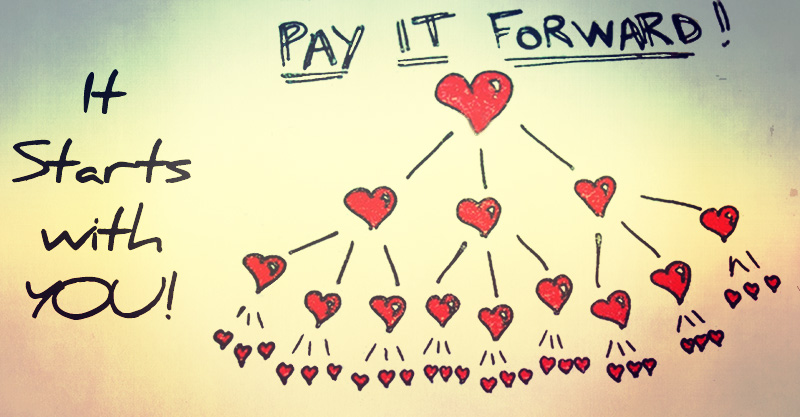
by Sarah Blinco | Oct 29, 2016 | Career and mindset
How YOU can generate kindness in the workplace
(and brighten someone’s day in five minutes or less!)
One of my ‘Friday jobs’ (as part of life working in internal communications) is to wander around our beautiful big central London building to visit all the different departments, update their staff notices, promote whatever’s going on (official business), and share some gossip (unofficial business).
When I returned to my desk after one such round recently, my boss told me that someone in another area, Ashley, had sent him a really nice email about me.
Ashley specifically emailed my boss to share that I represent my team in a positive way both in person and via phone and email. She made the comment that she thinks it’s important to highlight the good going on around us because it’s too easy to dwell on the negatives.
I share Ashley’s sentiment, and while I make a point to always genuinely thank or compliment friends and colleagues in my own way of generating kindness in the workplace, what struck me about her gesture was that she put herself out there and sent feedback to my manager.
That type of action is thoughtful and really matters. It didn’t just brighten my day, but my week which in all honesty had been long, tiring and reasonably stressful.
It got me thinking, what other ways could we each bring a little kindness into work?
4 ways to implement kindness in the workplace today
Thank you cards
I have a little stash of thank you cards at work and I hand write a note on one every now and then when I notice someone has gone out of their way for others.
Certainly, I’m no-one special at work – not a senior manager or anything – but that doesn’t matter to the recipient who is always grateful that someone noticed and cared about their efforts.
Pay attention to what’s going on around you
We are always so busy and stuck in our own deadlines that it’s easy to miss that others are in the same boat.
Being a little mindful and supportive can go a long way.
A hard-working friend of mine, Isabelle, was run down with a cold recently and she was really touched that a nurturing colleague, Emma, picked up some effervescent vitamin C for her while she was out on her lunch break.
They aren’t even in the same team, but Emma clocked that this could make a difference to Isabelle (who was also about to take a long flight to China to visit her sister), and she was right – this was a nice thing to do, at just the right time.
Similarly, two colleagues I work with this week noticed I seemed to be having a tough afternoon and promptly delivered chocolate to my desk. While I very much enjoyed eating the treats, their thoughtfulness cheered me up (thanks Caroline and Izzy!).
Start a gratitude initiative
We have staff noticeboards in all departments at work, and one of our jobs as internal communicators is to use these to build morale and engagement.
We’ve pinned pretty little cloth pouches (jewellery bags I found on eBay) to each board and filled these with coloured cards and pens; staff are encouraged to use these to pin notes on the boards. The messages can be about anything, including events, goods for sale, or praise for co-workers.
More specifically, I’ve pinned up A4 pages that go on the boards blank except for a heading: ‘Thank a colleague who you don’t usually work with who has made a positive difference to you’.
In some departments we’ve ended up with pages of notes from people who have shared messages of thanks (either including their names or anonymously).
When staff see someone’s thanked them in that public space it gives them a nice buzz, and generates wider feelings of happiness throughout the office.
This same concept can be applied using postcards, notes in your internal magazine or newsletters, and on intranet notices, digital thank you cards or conversation threads.
A few words go a long way
Finally, taking a lesson from Ashley’s kind gesture, it only takes a moment to email someone a genuine message of praise or gratitude.
Or, be proactive and let someone’s manager know an awesome job is being done – you might be surprised to know how little this happens!
In my experience people often assume things are a ‘given’; that gratitude or compliments are dished out freely (by someone else!). Often they are not.
Yet, countless human resources survey results have revealed that people are much happier and far more productive when they feel appreciated by managers as well as peers.
Imagine the difference that we would all experience at work if each of us took responsibility for implementing just one small kind action for someone else every week.
I’d love to hear about your tips, ideas and experiences around kindness in the workplace… Is it really possible to make an office happier, do you think?
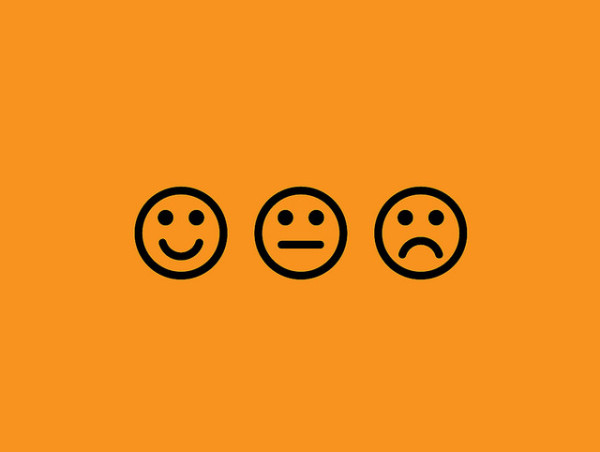
by Sarah Blinco | Jul 18, 2016 | Career and mindset, Lifestyle, Travel Live Learn in the media
After a very nice break away, yesterday I returned to discover a bulging inbox which left me feeling more than a tad overwhelmed, and to make matters worse, one of the first emails I opened turned out to be a lengthy rant about a piece of content I hadn’t complemented with a photo. The feedback was reasonable enough – I had been forced to rush through a digital feature that was to be attached to a marketing email, and the copy had been supplied at the last minute. Because I was extremely short on time, I failed to include a larger photo on this accompanying attached content, and absolutely agree that it would have been the better way forward. No excuses, and I for one am well aware that the best learning usually comes from recognising the mistakes I’ve made (or how I could have improved).
Only thing is, this message from a reader was shared in such a way that it was upsetting, and the tone of voice used was that of an individual who came across (in this email, at least) as one who assumes they know better.
It was really obvious they had not considered:
- My (as the content creator) feelings and the amount of work actually put into the entire body of work in the first place.
- Other time constraints and workload pressures I might be facing.
- All the other things in the overall campaign I’d actually got right!
Do you know the feeling?
Many of you reading this spend much of your day putting yourselves ‘out there’, creatively speaking and otherwise. Whether you are broadcasting on air, writing, blogging, filming, painting or working in PR and communications – it’s all a bit of a risky business for the ego. Some would even say we’re brave for doing it. I know a lot of people who are apprehensive about sharing their ideas, content or stories for fear of any type of criticism.
As content creators and communicators, we are consistently in a position where we need to produce written work or other creative output (videos, social media, blogs, magazine features etc.), and with that opportunity comes the people who are quick to judge our work, and not often in a constructive way.
We’re all pretty used to being ‘judged’, and I think most of the time this actually helps with positive personal and professional growth. Cooper and I began our careers in radio – an industry rife with arrogance and daily criticism of your work! That said, when delivered well, this really can help you become a far better on-air announcer than you ever would without feedback. Similarly, my mentors in publishing consistently showed me better ways to phrase, word, style and so on. This is how we hone a craft. This experience also helps you to develop a thick skin, which is something of a necessity in this and many other lines of work.
Criticism delivered in a negative, thoughtless or hurtful way though (whether intentional or unintentional on the part of the person sharing it), can have an adverse impact on self-esteem and confidence, and for those working in communications and creative industries, it has the potential to cause real problems.
People tend to be quick to pick problems, but very slow to share praise or thanks in the form of emails or comments on social media, websites or blogs. Have you ever been on the receiving end of destructive criticism and what kind of impact did it have on you?
These kinds of experiences remind me to think twice if I catch myself being judgmental and critical of other people’s work, because actually, they’re likely to have put much time and effort into the ideas, reason and production of the content being consumed out there in the public domain (whether you thoroughly enjoy it or not). Sharing feedback on someone’s published work is actually challenging their abilities and ideas, and it’s reasonable to expect that what comes back – if not entirely positive – should be designed to help them grow.
Moral of the story: give feedback constructively not destructively; and if you’re on the receiving end, take the valuable learning from it, and leave the rest at the door.
Today’s challenge: When you see something online today (on social media, a website, news site or blog) that’s helpful, makes you smile or feel inspired, drop a positive comment there to let the person behind it know you appreciate the thought and time they’ve put in.











